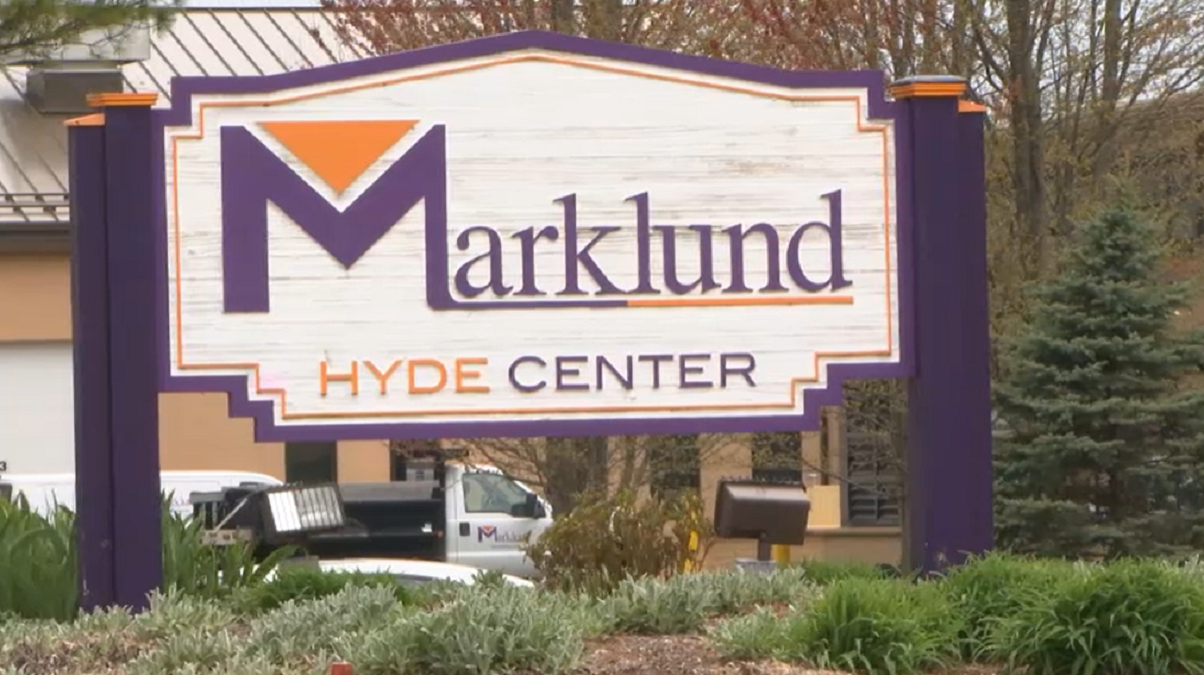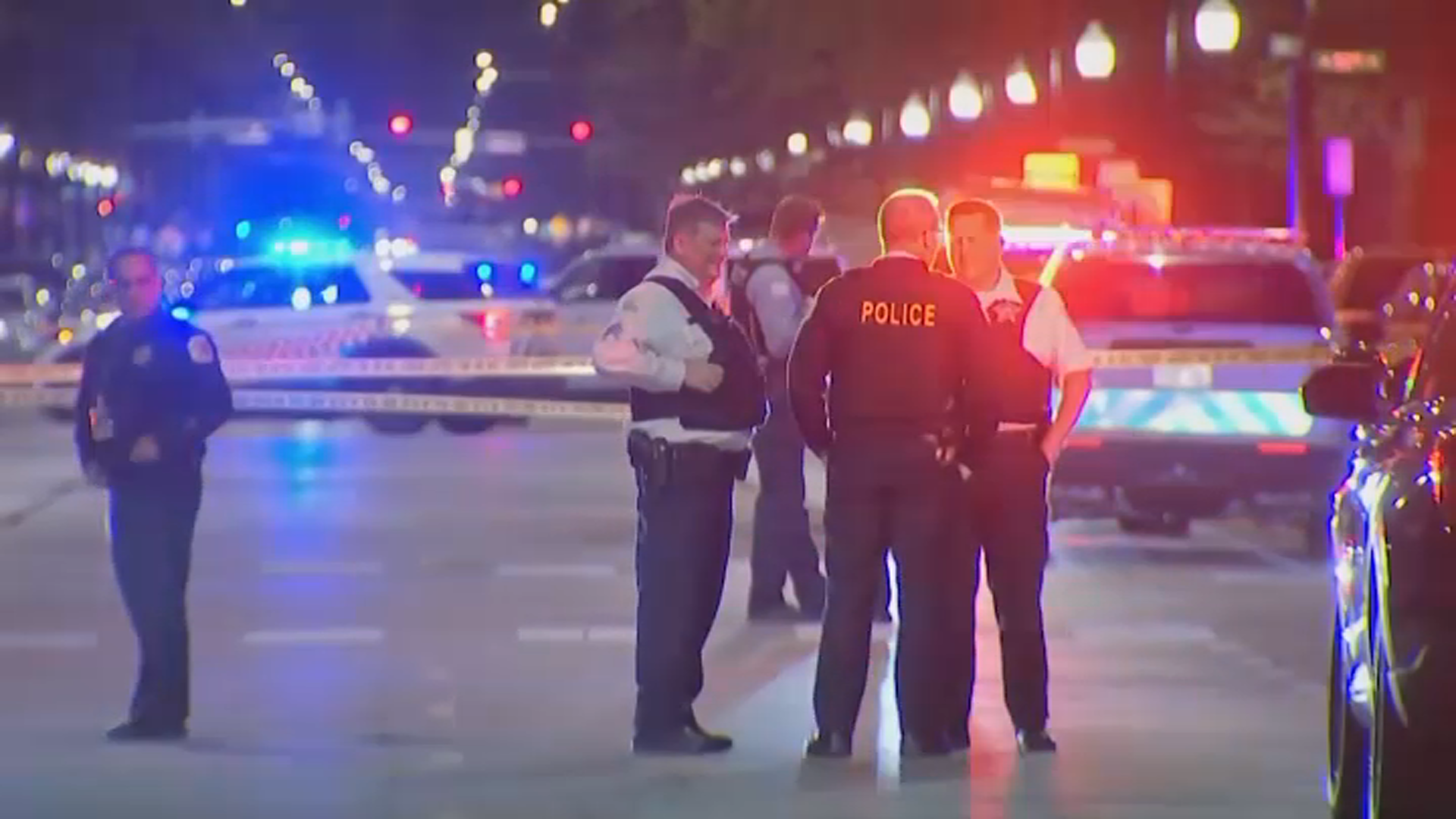Hours after President Donald Trump tore into Chicago Police Supt. Eddie Johnson and the city's violence in a speech to law enforcement Monday, Johnson held a press conference to respond to the speech, which he admittedly didn't watch.
"We have bigger challenges in this city than to be going back and forth about stuff like this," Johnson said.
Johnson, who is hosting the International Association of Chiefs of Police conference that Trump addressed, previously said he would not attend the speech because he thought the "values of the people of Chicago are more important" than what Trump would say.
"I can't in good conscience stand by while racial insults and hatred are cast from the Oval Office or Chicago is held hostage because of our views on new Americans," Johnson said.
Trump took notice and addressed Johnson's absence within the first few minutes of his speech.
"In fact, more than anyone else, this person should be here because maybe he could learn something," Trump said Monday, reading back part of Johnson's statement on values.
"That's a very insulting statement after all I've done for the police, and I've done more than any other president's ever done for the police. Over 100 years we can prove it but probably from the beginning.
Trump accused Johnson of "not doing his job" and called Chicago the "worst sanctuary city in America," saying the city "protects criminals at a level few could even imagine."
"People like Johnson put criminals and illegal aliens before the citizens of Chicago, and those are his values and frankly those values to me are a disgrace," Trump said.
"I want Eddie Johnson to change his values, and change them fast," Trump said. He then called Chicago's violence "embarrassing to us as a nation."
Johnson said the "national narrative that Chicago is a city on fire is just simply not true."
"Facts matter," he said, touting three years straight of "double digit reduction" in crime and noting that there are "17 neighborhoods in this city that are safer than Manhattan and LA."
"This president is known for doing a lot of talking about the city of Chicago, but if he's truly ready to roll up his sleeves to partner with us, so are we, as long as that partnership reflects who we are as Chicagoans," Johnson said.
He added that the "same police officers the president criticized for their inability to protect the city spent all day protecting him."
Johnson also addressed Trump's comments on the city's status as a sanctuary city, saying his administration "has hurt many communities in Chicago."
"But CPD is here, and will always be here to stand up for them," Johnson said. "We're sworn to protect and safeguard everyone in Chicago no matter where you come from, who you love or what God you worship."
At one point in his speech, Trump relayed a story he has previously told as a candidate in 2016, about a conversation he claimed to have had with an unnamed police officer in Chicago who said he could "fix this killing problem" in one day.
"'These cops are great, they know all the bad guys, sir, they know exactly what to do. We could straighten it out so quickly that your head would spin,'" Trump claims the man told him, alleging Monday that the officer in question no longer worked in law enforcement.
Local
When Trump told this story in an August 2016 interview, he said that he met with a "top" Chicago police officer who said he could stop the "horror show" within a week. Chicago police denied his claim at the time, saying in a statement, "We've discredited this claim months ago. No one in the senior command at CPD has ever met with Donald Trump or a member of his campaign."
When asked about the comments in 2016, Johnson himself addressed Trump's story as well.
"If you have a magic bullet to stop the violence anywhere, not just in Chicago, but in America, then please share it with us," Johnson said at the time. "We’d be glad to take that information and stop this violence."
When asked again about the story Monday, Johnson made a similar statement.
"If there’s somebody that can stop crime in a day then I will bow down to them and say bring it on, but that’s just no going to happen," Johnson said, adding that when they launched a search for the "mystery cop" no one would come forward.
Following his speech on Monday, Trump signed an executive order at the conference a White House spokesman said would "address the root causes of crime and better train, recruit and retain law enforcement officers."
Trump's visit to Chicago Monday was his first to the city since taking office, though he's long disparaged the city's violence and its Democratic leaders.
Chicago Mayor Lori Lightfoot has counted herself among Trump's critics, taking to Twitter on Monday to denounce his speech and voice support for Johnson.
"It's no surprise that @realDonaldTrump brought his insulting, ignorant buffoonery to Chicago," Lightfoot tweeted. "Luckily, in this city, we know the truth and we will not let anyone — no matter how high the office — denigrate who we are as a people or our status as a welcoming city."
"Rather than belittle Chicago's communities with hateful and dishonest rhetoric, he needs to go back to D.C. and face his fate," she continued. "President Trump knows as much about policing as he does running a fair and transparent government. I stand by the Superintendent for living up to the values of this great city and its residents."
Also on Trump's schedule for his visit Monday was a fundraiser at the Chicago Trump International Hotel and Tower, hosted in part by Todd Ricketts, the Republican National Committee finance chair and part-owner of the Chicago Cubs.
An estimated 3,000 people gathered near Trump Tower by around 12 p.m. CST to protest Trump's visit, chanting and holding signs calling for his impeachment.
Trump was last in Chicago in September 2016, when he attended a campaign event at the Polish National Alliance in the Edgebrook neighborhood, followed by a fundraiser in suburban Bolingbrook.
He was also in Chicago in March 2016, when protests canceled a scheduled rally at the then-UIC Pavilion at the University of Illinois-Chicago. Campaign organizers told those planning to attend the rally for then-candidate Trump that after consulting with law enforcement, the decision was made to postpone the event.



